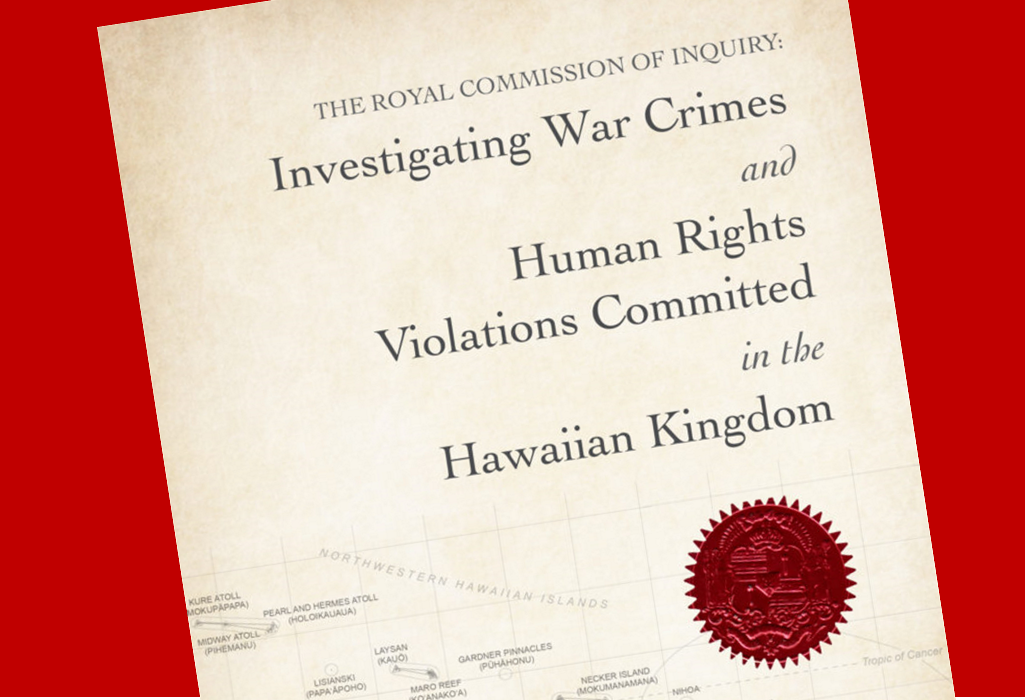
The Royal Commission of Inquiry (RCI) was established by Proclamation of the Hawaiian Kingdom Council of Regency on June 17, 2019, yet there has been no coverage in either the mainstream media or the alternative media. Most people are simply not aware that the Hawaiian Islands have been under a prolonged and illegal occupation by the United States since January 17, 1893.
What is the RCI, its mandate and its investigative authority? This brief article will attempt to answer these questions and, consequently, bring a broader awareness of the American occupation.
A simple Google search of Larsen v. Hawaiian Kingdom will reveal that the Permanent Court of Arbitration (PCA) in The Hague, Netherlands, acknowledged the Hawaiian Kingdom to be a State or country and its government is the Council of Regency. This continued existence of the Hawaiian Kingdom as a country was not affected by the illegality or duration of the American occupation. The PCA was established in 1899 by the United States and other countries to resolve international disputes.
In 1999, arbitration proceedings were initiated at the PCA between a Hawaiian national and the government of the Hawaiian Kingdom—the Council of Regency. The dispute centered on the unlawful imposition of American laws over the territory of the Hawaiian Kingdom. At the PCA’s website, it states:
Lance Paul Larsen, a resident of Hawaii, brought a claim against the Hawaiian Kingdom by its Council of Regency (“Hawaiian Kingdom”) on the grounds that the Government of the Hawaiian Kingdom is in continual violation of: (a) its 1849 Treaty of Friendship, Commerce and Navigation with the United States of America, as well as the principles of international law laid down in the Vienna Convention on the Law of Treaties, 1969 and (b) the principles of international comity, for allowing the unlawful imposition of American municipal laws over the claimant’s person within the territorial jurisdiction of the Hawaiian Kingdom.
Larsen was not able to maintain his lawsuit without the participation of the United States, despite being formally invited by the parties, because it was the United States that caused the injury to him and not the Council of Regency. He was claiming the Council of Regency was liable for the injury by allowing the imposition of American laws, which the Council rejected. Consequently, the United States was a necessary third party.
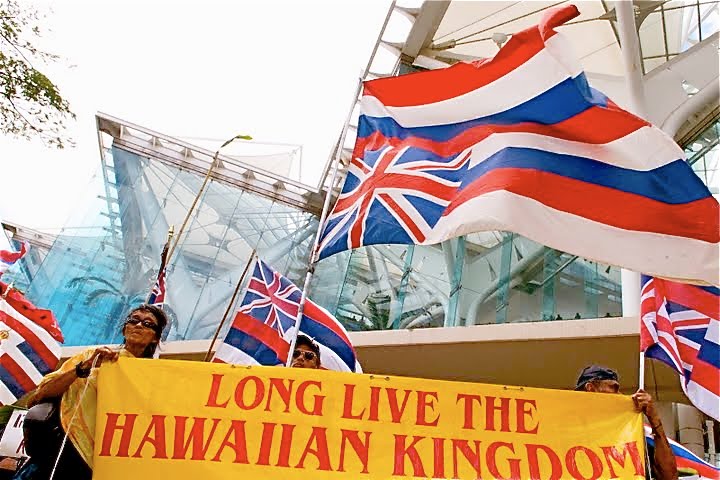
However, for the Council of Regency, the significance of this case is the PCA’s acknowledgment of the Hawaiian Kingdom’s continued existence as a State before the arbitral tribunal was established. Before the PCA could form the arbitral tribunal to resolve the international dispute, Article 47 of the 1907 PCA Convention required that one of the parties had to be a State. The proceedings were initiated on November 8, 1999, and the arbitral tribunal was formed on June 9, 2000, which is after the PCA verified the Hawaiian Kingdom to be an existing State.
The United States, which is a contracting State to the 1907 PCA Convention and a member State of the PCA Administrative Council, did not object to these proceedings and even entered into an agreement with Larsen and the Council of Regency to have access to all records and pleadings of the case. This agreement was brokered by Phyllis Hamilton, Deputy Secretary General of the PCA, between the parties and the American Embassy in The Hague. For more information on this case, download the article “Backstory—Larsen v. Hawaiian Kingdom at the Permanent Court of Arbitration (1999-2001).”
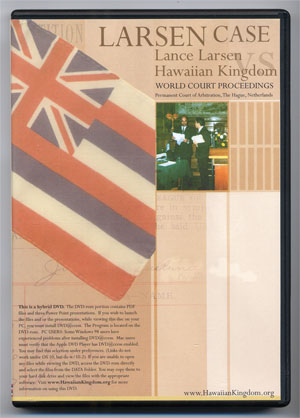
In 2005, the United Nations at its World Summit adopted the principle of the Responsibility to Protect (R2P) its populations from genocide, war crimes, crimes against humanity and ethnic cleansing. In 2009, the General Assembly reaffirmed the principle, and in 2021, the General Assembly passed a resolution on “The responsibility to protect and the prevention of genocide, war crimes, ethnic cleansing and crimes against humanity.”
According to the International Committee of the Red Cross Study on Customary International Humanitarian Law, Rule 158 specifies that “States must investigate war crimes allegedly committed by their nationals or armed forces, or on their territory, and, if appropriate, prosecute the suspects. They must also investigate other war crimes over which they have jurisdiction and, if appropriate, prosecute the suspects.” This “rule that States must investigate war crimes and prosecute the suspects is set forth in numerous military manuals, with respect to grave breaches, but also more broadly with respect to war crimes in general.”
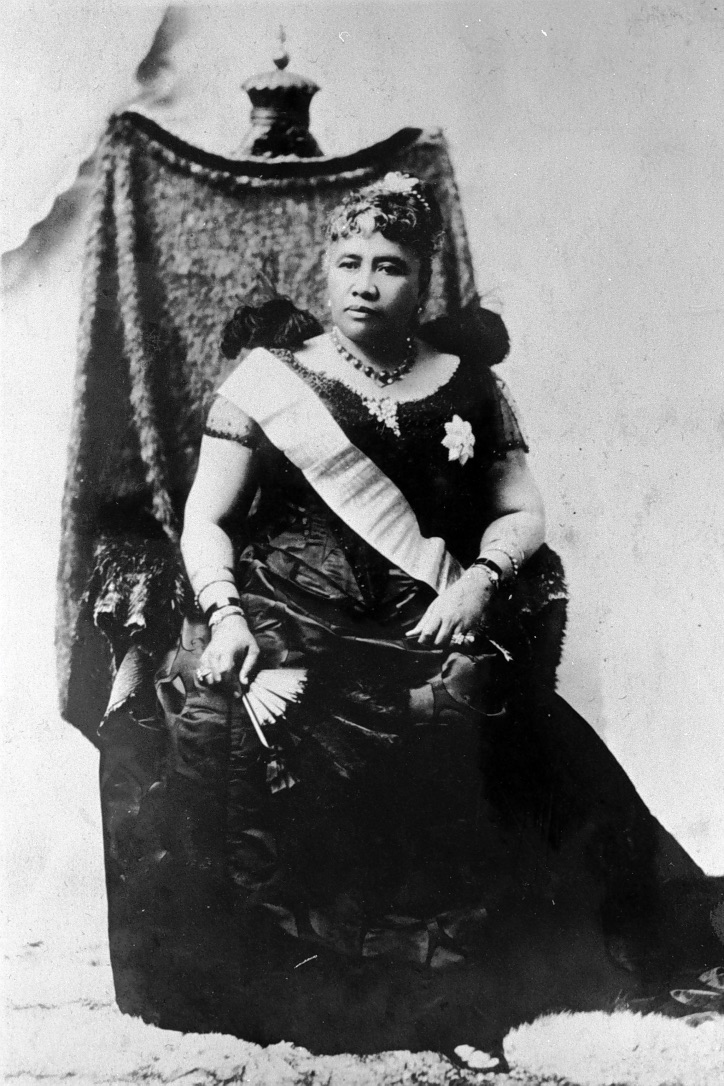
While Larsen was not able to maintain his suit against the Council of Regency, it did bring to the attention of the international community the war crime of usurpation of sovereignty during military occupation. Usurpation of sovereignty during military occupation is the imposition of the laws and administrative policies of the Occupying State over the territory of the Occupied State. It was declared to be a war crime in the aftermath of the First World War by the Commission on Responsibilities in its 1919 report, to which the United States was a party.
In the annex of its 1919 report, the Commission charged that in Romania the German authorities had instituted German civil courts to try disputes between subjects of the Central Powers or between a subject of these powers and a Romanian, a neutral, or subjects of Germany’s enemies.” In Serbia, the Bulgarian authorities had “Proclaimed that the Serbian State no longer existed, and that Serbian territory had become Bulgarian.”
It listed several other war crimes committed by Bulgaria in occupied Serbia: “Serbian law, courts and administration ousted”; “Taxes collected under Bulgarian fiscal regime”; “Serbian currency suppressed”; “Public property removed or destroyed, including books, archives and MSS (e.g., from the National Library, the University Library, Serbian Legation at Sofia, French Consulate at Uskub).” It also charged that the German and Austrian authorities had committed several war crimes in Serbia: “The Austrians suspended many Serbian laws and substituted their own, especially in penal matters, in procedure, judicial organization, etc.”
The war crime of usurpation of sovereignty during military occupation was referred to by Judge Blair of the American Military Commission in a separate opinion in the Justice Case, that “This rule is incident to military occupation and was clearly intended to protect the inhabitants of any occupied territory against the unnecessary exercise of sovereignty by a military occupant.” Australia, Netherlands and China enacted laws making usurpation of sovereignty during military occupation a war crime. In the case of Australia, the Parliament enacted the Australian War Crimes Act in 1945 that included the war crime of usurpation of sovereignty during military occupation.
This war crime is also considered particular customary international law and binding on the Allied Powers of the First World War, whether they enacted a domestic law or not. The Treaty of Versailles listed these countries, which include the United States of America, Great Britain, France, Italy and Japan, principal Allied Powers and Associated Powers that include Australia, Belgium, Bolivia, Brazil, Canada, China, Cuba, Czechoslovakia, now known as Czech Republic, Ecuador, Greece, Guatemala, Haiti, Honduras, Liberia, New Zealand, Nicaragua, Panama, Peru, Poland, Portugal, Romania, South Africa, Thailand, and Uruguay.
In the Hawaiian situation, usurpation of sovereignty during military occupation serves as a source for the commission of other war crimes within the territory of the Hawaiian Kingdom, which includes the war crimes of compulsory enlistment, denationalization, pillage, destruction of property, deprivation of fair and regular trial, deporting civilians of the occupied territory, and transferring populations into an occupied territory. The reasoning for the prohibition of imposing extraterritorial prescriptions or measures of the occupying State is addressed by Professor Eyal Benvenisti:

The occupant may not surpass its limits under international law through extraterritorial prescriptions emanating from its national institutions: the legislature, government, and courts. The reason for this rule is, of course, the functional symmetry, with respect to the occupied territory, among the various lawmaking authorities of the occupying state. Without this symmetry, Article 43 could become meaningless as a constraint upon the occupant, since the occupation administration would then choose to operate through extraterritorial prescription of its national institutions.
On March 22, 2022, the United Nations Human Rights Council (HRC) was made aware that the war crime of usurpation of sovereignty was and continues to be committed by the United States over the territory of the Hawaiian Kingdom, when the author, on behalf of the International Association of Democratic Lawyers and the American Association of Jurists both of which are NGOs with observer status to the HRC, delivered an oral statement.
The RCI was established in similar fashion to the United States proposal of establishing a Commission of Inquiry after the First World War “to consider generally the relative culpability of the authors of the war and also the question of their culpability as to the violations of the laws and customs of war committed during its course.”
In accordance with Hawaiian administrative precedence in addressing crises, the RCI was established by “virtue of the prerogative of the Crown provisionally vested in [the Council of Regency] in accordance with Article 33 of the 1864 Constitution, and to ensure a full and thorough investigation into the violations of international humanitarian law and human rights within the territorial jurisdiction of the Hawaiian Kingdom.” The author has been designated as Head of the Royal Commission, and Dr. Federico Lenzerini, Ph.D., as Deputy Head. Pursuant to Article 3—Composition of the Royal Commission, the Head of the Royal Commission has been authorized to seek “recognized experts in various fields.”

The RCI acquired legal opinions from the following experts in international law: on the subject of the continuity of the Hawaiian Kingdom under international law, Professor Matthew Craven from the University of London, SOAS, School of Law; on the subject of the elements of war crimes committed in the Hawaiian Kingdom since 1893, Professor William Schabas, Middlesex University London, School of Law; and on the subject of human rights violations in the Hawaiian Kingdom and the right of self-determination by the Hawaiian citizenry, Professor Federico Lenzerini, University of Siena, Italy, Department of Political and International Studies.
These experts, to include the Head of the Royal Commission, are the authors of chapters 1, 2, 3, 4 and 5 of Part II of the Royal Commission’s eBook—The Royal Commission of Inquiry: Investigating War Crimes and Human Rights Violations Committed in the Hawaiian Kingdom.
According to Article 1(2) of the proclamation, “The purpose of the Royal Commission shall be to investigate the consequences of the United States’ belligerent occupation, including with regard to international law, humanitarian law and human rights, and the allegations of war crimes committed in that context. The geographical scope and time span of the investigation will be sufficiently broad and be determined by the head of the Royal Commission.”
The Royal Commission began by providing Preliminary Reports on various subjects relative to its mandate and its investigation of war crimes that meet the constituent elements of mens rea—criminal intent, and actus reus—the act or acts of committing the crime.
In mid-November of 2022, the RCI published its initial criminal and war criminal reports no. 22-0001, 22-0002, 22-0002-1, 22-0003, 22-0003-1, 22-0004, 22-0004-1, 22-0005, 22-0005-1, 22-0006, 22-0006-1, 22-0007, 22-0007-1, 22-0008 and 22-0009.
These reports identified senior leadership of the United States, the State of Hawai’i, and its Counties, which include President Joseph Biden and State of Hawai’i Governor David Ige, to be guilty of committing the war crimes of usurpation of sovereignty during military occupation, deprivation of fair and regular trial, and pillage. The RCI criminal reports provide the necessary evidence for the issuance of arrest warrants and prosecution by foreign countries.
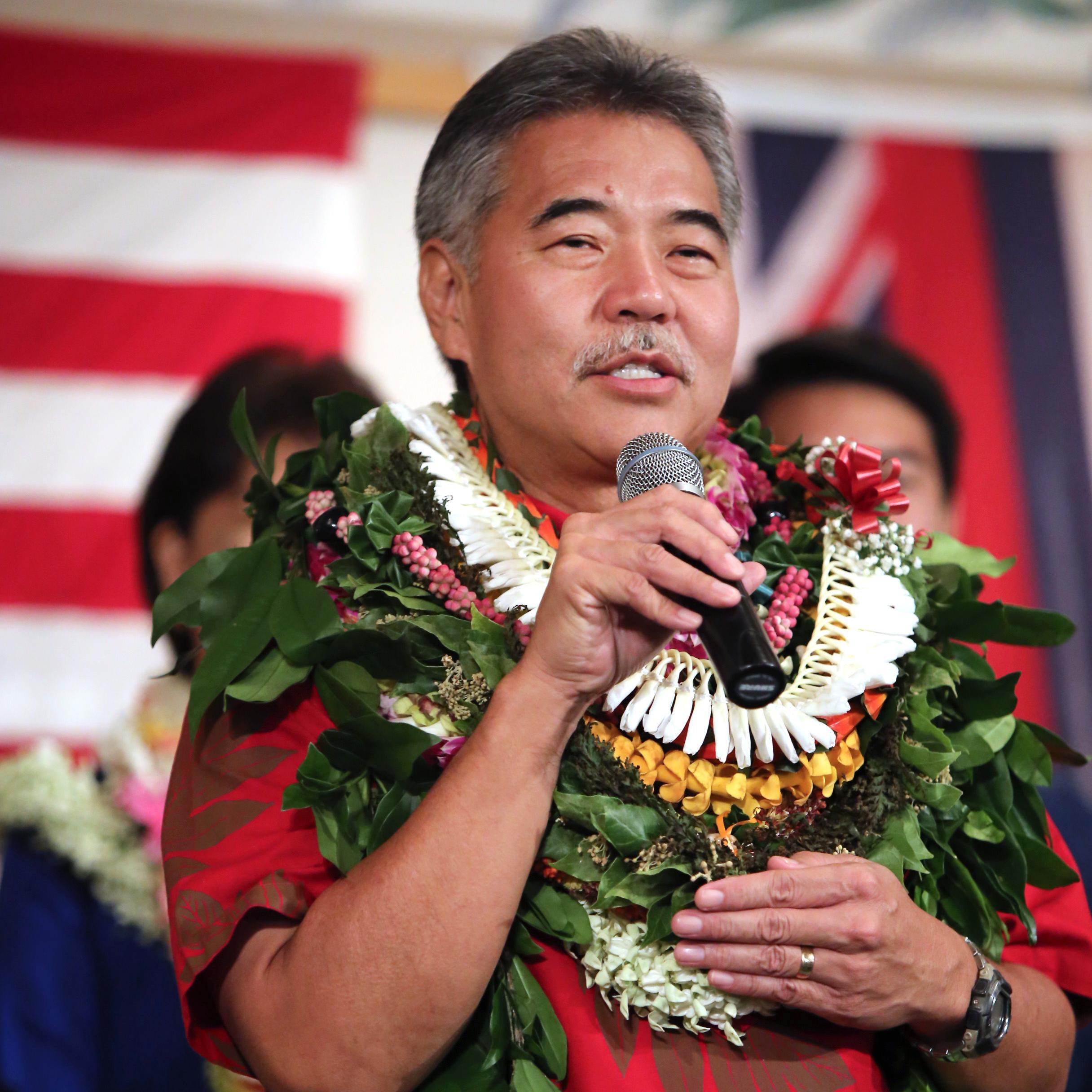
Usurpation of sovereignty has not only victimized the civilian population in the Hawaiian Islands for more than a century, but it has also victimized the civilians of other countries that have visited the islands since 1898 who were unlawfully subjected to American municipal laws and administrative measures. These include State of Hawai’i sales tax on goods purchased in the islands but also taxes placed exclusively on tourists’ accommodations collected by the State of Hawai’i and the Counties.
The Counties have recently added 3% surcharges to the State of Hawai’i’s 10.25% transient accommodations tax. Added with the State of Hawai’i’s general excise tax of 4% in addition to the 0.5% County general excise tax surcharges, civilians who are visiting the islands will be paying a total of 17.75% to the occupying power. In addition, those civilians of foreign countries doing business in the Hawaiian Islands are also subjected to paying American duties on goods that are imported to the United States destined to Hawai’i. These duty rates are collected by the United States according to the United States Tariff Act of 1930, as amended, and the Trade Agreements Act of 1979.
The far reach of the victims of war crimes committed in the Hawaiian Islands includes civilians throughout the world in various countries.

CovertAction Magazine is made possible by subscriptions, orders and donations from readers like you.
Blow the Whistle on U.S. Imperialism
Click the whistle and donate
When you donate to CovertAction Magazine, you are supporting investigative journalism. Your contributions go directly to supporting the development, production, editing, and dissemination of the Magazine.
CovertAction Magazine does not receive corporate or government sponsorship. Yet, we hold a steadfast commitment to providing compensation for writers, editorial and technical support. Your support helps facilitate this compensation as well as increase the caliber of this work.
Please make a donation by clicking on the donate logo above and enter the amount and your credit or debit card information.
CovertAction Institute, Inc. (CAI) is a 501(c)(3) non-profit organization and your gift is tax-deductible for federal income purposes. CAI’s tax-exempt ID number is 87-2461683.
We sincerely thank you for your support.
Disclaimer: The contents of this article are the sole responsibility of the author(s). CovertAction Institute, Inc. (CAI), including its Board of Directors (BD), Editorial Board (EB), Advisory Board (AB), staff, volunteers and its projects (including CovertAction Magazine) are not responsible for any inaccurate or incorrect statement in this article. This article also does not necessarily represent the views the BD, the EB, the AB, staff, volunteers, or any members of its projects.
Differing viewpoints: CAM publishes articles with differing viewpoints in an effort to nurture vibrant debate and thoughtful critical analysis. Feel free to comment on the articles in the comment section and/or send your letters to the Editors, which we will publish in the Letters column.
Copyrighted Material: This web site may contain copyrighted material the use of which has not always been specifically authorized by the copyright owner. As a not-for-profit charitable organization incorporated in the State of New York, we are making such material available in an effort to advance the understanding of humanity’s problems and hopefully to help find solutions for those problems. We believe this constitutes a ‘fair use’ of any such copyrighted material as provided for in section 107 of the US Copyright Law. You can read more about ‘fair use’ and US Copyright Law at the Legal Information Institute of Cornell Law School.
Republishing: CovertAction Magazine (CAM) grants permission to cross-post CAM articles on not-for-profit community internet sites as long as the source is acknowledged together with a hyperlink to the original CovertAction Magazine article. Also, kindly let us know at info@CovertActionMagazine.com. For publication of CAM articles in print or other forms including commercial internet sites, contact: info@CovertActionMagazine.com.
By using this site, you agree to these terms above.
About the Author
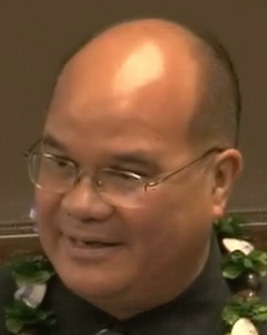
Dr. Keanu Sai is Head of the Royal Commission of Inquiry.
He also served as lead Agent for the Hawaiian Kingdom in Larsen v. Hawaiian Kingdom at the Permanent Court of Arbitration from 1999-2001.
Dr. Sai is also a faculty member at the University of Hawai‘i where he teaches political science and Hawaiian Studies in both undergraduate and graduate courses.
Dr. Sai can be reached at https://hawaiiankingdom.org/blog/.

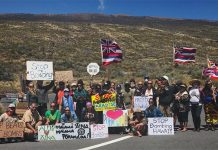
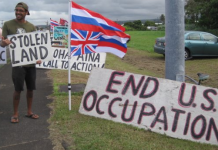

Aloha Dr. Sai, I’ve gotta say you never cease to amaze me. Brilliant! Loved the article and I loved the venue of getting this important information out there to educate us . Please continue the good work. Myself and many others are depending on you. I am looking forward to the next publication and I will be forwarding this link to some others whom I know will appreciate it. I am also pledging a monthly donation to help support this cause to educate the public about war crimes and the criminals committing them. Mahalo for all you do.